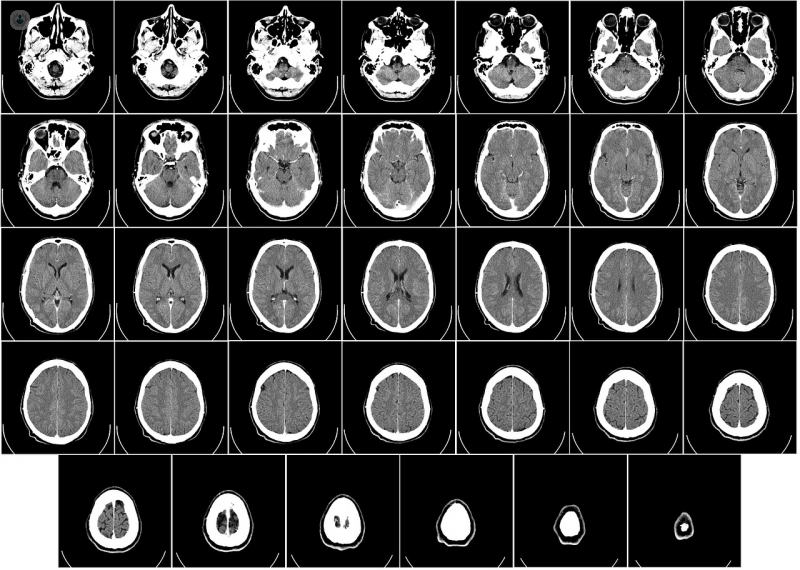

What is a head CT scan?
A head CT scan is a type of scan which uses x-rays to create detailed images of you head, including the skull, brain tissue, and blood vessels. It is a fast, painless, and non-invasive procedure carried out by a radiologist.

Why is it done?
If your doctor can’t determine the cause of symptoms such as headaches, seizures, speech difficulty, or hearing loss, a head CT scan may be recommended. It is also often used in critical situations where the head has suffered trauma , because it can produce images very quickly compared to a brain MRI . A head CT can be used to detect and investigate:
- bleeding in the brain caused by a stroke, head injury, or aneurysm
- brain tumours
- issues with the skull, such as malformations or fractures
The images produced can be used to diagnose:
- brain cancer
- stroke
- hydrocephalus
- birth defects
Finally, the scan can be used to help doctors plan surgery if required.
What to expect
For a detailed look at how CT scans work, what you can expect, and how to prepare, see our page on CT scans.
It’s important to keep your head as still as possible during the scan. The scanner will rotate around your head taking images at a very fast rate, and you might be asked to hold your breath at certain points. You may be scanned by a special head scanner that you can sit up in, rather than having to lie down as for other types of CT scan.
In some cases you might be asked to take a contrast dye to help certain parts of the brain show up better in the scan. If this is the case, you will be asked not to eat or drink anything for a few hours before the scan, and the dye will be given through an IV line.
After the scan you might be monitored for a little while to make sure you don’t have an allergic reaction to the dye. If you’re in a critical condition you may be immediately transferred to the operating theatre, with surgeons using the results of the scan to guide their work. If, however, the scan is part of a diagnostic process, the radiologist will send the results to a specialist, who will follow up with further tests or an appointment to talk about your diagnosis.
